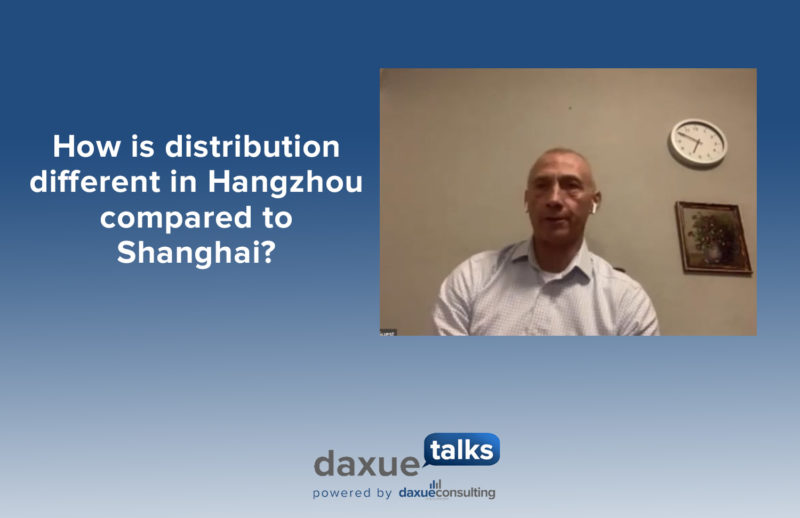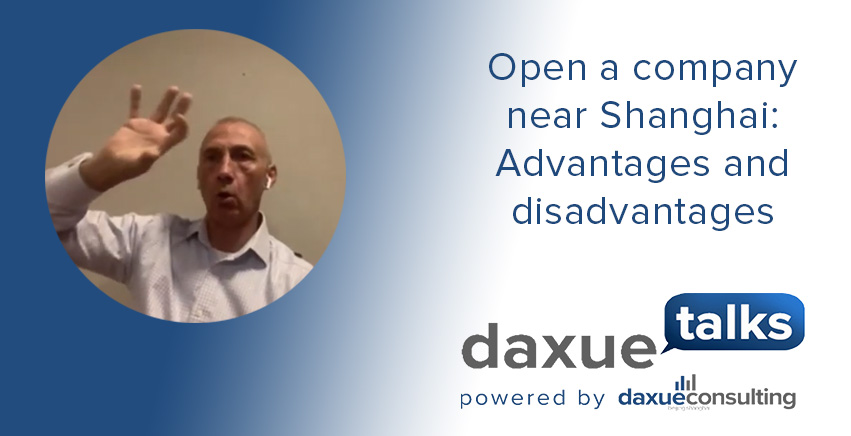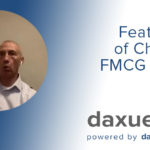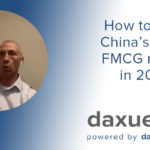Daxue Talks transcript #10: Open a company near Shanghai: advantages and disadvantages
Find here the Daxue Talks episode 10. From the talk with Igor learn in 2-5 minutes about the advantages and disadvantages of opening a company near Shanghai.
Full transcript below:
My name is Igor Temirov, I’m an expert in developing foreign markets and for the last five years, I have been in China, helping several companies to enter the Chinese market.
- How is distribution different in Hangzhou compared to Shanghai?
Good question. From one side there are a lot of similarities in these markets because in both Hangzhou and Shanghai there is a very high purchasing power in their population, it is also a city with 9 million citizens compared to 25 in Shanghai, but on the other side the number of retail chains, retail outlets, major shopping centers are definitely smaller. So, for example, if you look at the big FMCG and grocery chains like Carrefour, like Auchan, there is only one Carrefour in Hangzhou and we know that in Shanghai Carrefour is one of the leading chains. So, practically most of the Western companies first established in Shanghai, so there is the highest concentration of retails and modern shopping centers but practically 3 or 4 modern shopping centers in Hangzhou.

But on the other side, for the companies who are entering the Chinese market, it will be very difficult to establish themselves in Shanghai because you need to have a few muscles, you need to have a more well-known brand, etc. And prices in Shanghai will be higher for an office, it could be 3 to 5 times higher, salary of your people will be also higher but if you look at the quality of people, there are pretty much the same sales managers with the same experience but they will cost you less [in Hangzhou].
2. What are the most dynamic industries in Hangzhou? (Can you please support each industry with a company example)
Basically, Hangzhou is the internet capital of China. The most prominent business here which is driving the local economy is online: this is the headquarters of Alibaba, Tmall and also headquarters of other online platforms. Five years ago, when I came to China, there were basically two main platforms, Tmall and JingDong and you had to choose between them. JingDong was in Beijing and Tmall was in Hangzhou. But at that time, so I said there would be a growth of small and new innovative companies with new ideas and this is actually what happened. So, it is happening like in the Silicon Valley where a lot of, you know, guys who are “underpinned” in their organization, they go out and they find new ideas; and Hangzhou now is the capital and the home city for many major APPs and other platforms.
3. What is your observation of the purchasing power of the people in Hangzhou compared to Shanghai?
I think we should be talking not about just people, but we have specific products that we are targeting for specific audiences. And, I was working mostly with mass products and the upper/medium-priced products, and of course the purchasing power of population in Shanghai is higher, but at the same time, there is another factor which is consumer activity, and the consumer activity when people have so many choices like in Shanghai, their activity is not so high. So, you need to do much more to impress them in Shanghai. So, you will be shocked that one of the highest sales that we experienced in China was in Chengdu. Chengdu, which has also a high concentration of people with a purchasing power but with fewer choices, they are much more willing to try and experiment with western products, where in Shanghai it happened like, 20, 30 years ago.
4. What are the benefits of setting up a company in Hangzhou over Shanghai?
When you are deciding on the entry city in the country you selected, I am normally doing an analysis of 42 factors, and I put all the factors together – they are pretty much the same for any country, so I was recently doing this exercise for the United-States, for India, … -. So, you have to go through all this: economy, logistics, purchasing power, cultural, traditional, … but there is also one interesting point which is “trend-setting cities”. So, for example, when consumers will learn about your product they need to know “where is this product from”, so they will look at the registration of your company and Hangzhou is one of those trend-setting cities in China.
The second factor is the concentration of the population. Because if you go to Shanghai you have, from one side, the see, so there are no people. And I was trying to find a city which would be deeper in the country and when you draw a circle around Hangzhou, you will have in 300 kilometers, a population base of 340 million people. So, it is much more population-based. You also need to look for a city with a good size, where you could experiment, where they have major retail chains, and this is all the factors we have in Hangzhou.
And, last year, Price Waterhouse Coopers did a study on 26 cities in China for entering the Chinese market and Hangzhou was the winner out of, I would say, 20 or 30 factors that they analyzed.
You also have to look at the logistics. For us, warehouses and proximity to major cities make a significant effect. For example, we went to other cities: we went to Chengdu, to other places and also, we searched in Shanghai the prices for the warehousing. For the warehouse services, especially if you are working online, it is much higher because Hangzhou is based on this online industry so there are multiple choices for affordable warehouses with a good system, with well-experienced people and this makes it attractive.
5. What are some of the most impressive characteristics of Hangzhou?
There is a business level and there is a people’s level. On the human or people’s level, for people who are just living in Hangzhou, it is one of the most incredible cities if you are doing sport. I don’t know any other city in the world – and I am comparing with San Francisco, with Switzerland, with Barcelona – where you can just take your bicycle and then do 30, 50, 70 kilometers just along the river with absolutely no traffic. So, it is great for sport and the second most prominent is that it is a beautiful city because it has western lakes, it has mountains, I don’t know many cities in the world, of this size, where, in the center of the city you have the famous “longjing tea”.
But on the business level, I think the main drivers in China are definitely online business. And, five years ago, when I was selecting Hangzhou, I was thinking that when you are beginning you don’t have big budgets. You need to catch the trends, the leading trends, and the leading trend is definitely online. And, you will grow with growth, with all dynamics for online business. You will have the expertise, you will have people. So, this makes it very special.
Daxue Talks is a show powered by Daxue Consulting, a china-based strategic market research company founded in 2010! With Daxue Talks, you will stay up to date with all the latest business updates in China.















